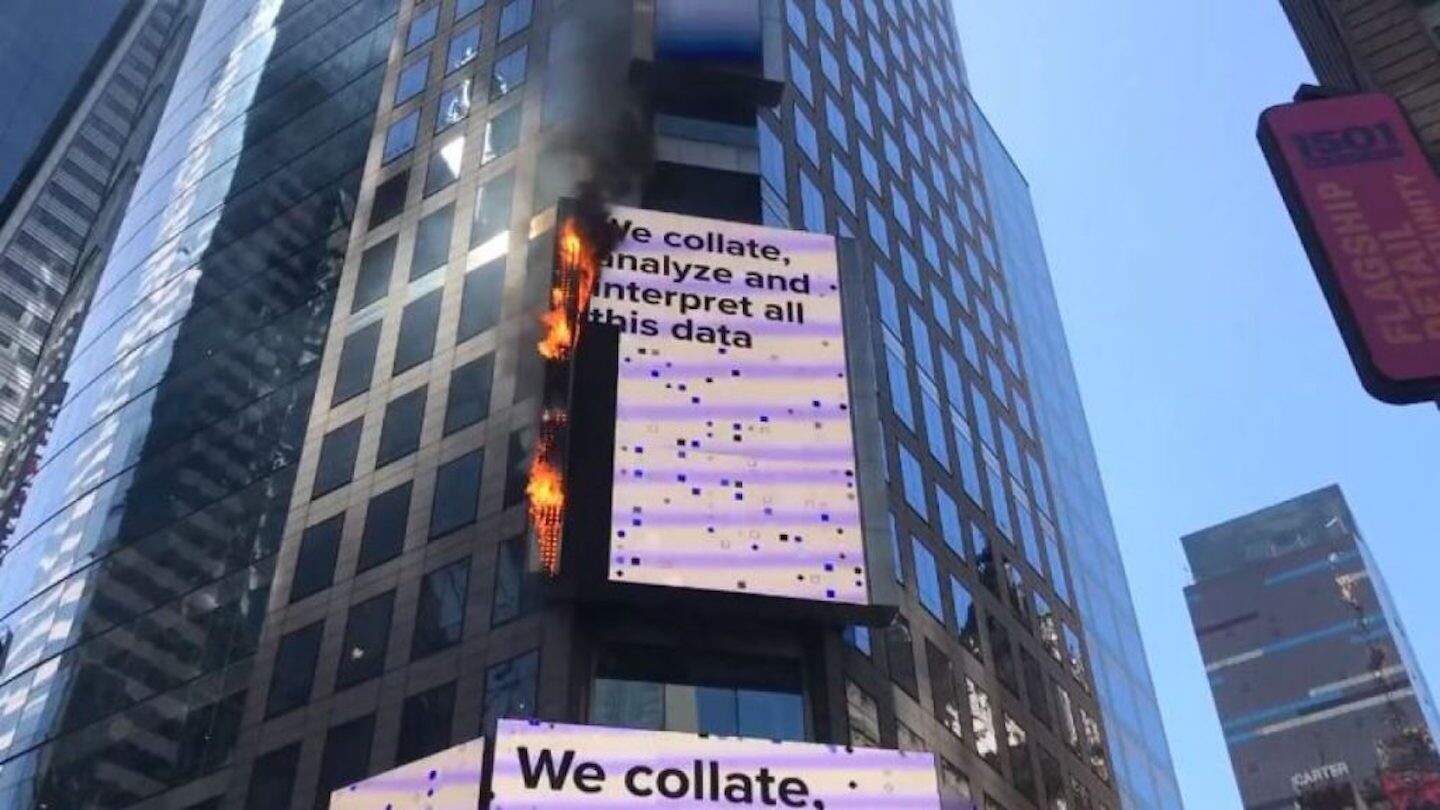Symposium co-presented by KADIST and e-flux
February 1, 2020, 11am-7pm
311 East Broadway
New York, NY 10002
USA
Participants include American Artist (artist); Anti-Eviction Mapping Project (data-visualization, data analysis, and storytelling collective); Jérôme Bel (choreographer); James Bridle (writer, artist, and technologist); Kate Crawford (Distinguished Research Professor at NYU); Martha Kenney (Assistant Professor of Women and Gender Studies at San Francisco State University); Laura Kurgan (Professor of Architecture at GSAPP, and Director, Center for Spatial Research, Columbia University); Trevor Paglen (artist); Gala Porras-Kim (artist); Kameelah Janan Rasheed (artist and learner); Steve Rowell (artist); Davide-Christelle Sanvee (performance artist); and Andros Zins-Browne (choreographer).
Curated by Adam Kleinman (KADIST’s Regional Curator for North America).
KADIST and e-flux present Ways of Reading, an exploratory day of talks, interventions, and performances featuring a multidisciplinary set of artists and thinkers. The symposium examines how forms of information describe, prescribe, organize, and even misrepresent reality. This framework aims to emphasize how data and statistical analysis can function as powerful, yet often incomplete tools that can be wielded to produce exclusionary models for social distribution and recognition. While numerical mistakes are plain to see once revealed, false positives, cognitive biases, and other forms of erroneous thinking are not unique to computational logics alone. The presentations explore data as a theme in general, across various disciplines including public health, urban planning, archeology, geology, and others. Playfully investigative rather than thesis driven, the symposium proposes that understanding is made richer, if not possibly more truthful, by including a diversity of research practices and forms of critique that take alternative views and approaches into consideration. If we were to present a guiding thought for the day, it would be to remember that: a sparrow, to an ornithologist, is not the same thing as to a poet.
The symposium is structured around three sessions that place complementary participants in dialogue. The symposium begins with presentations and discussions with Trevor Paglen, Kate Crawford, James Bridle, and Steve Rowell, touching on artificial and nonhuman intelligence, remote sensing technology, and post-natural landscapes, followed by new research from Gala Porras-Kim that interweaves archeology, space, and psychic regression. In the afternoon, Martha Kenney will discuss the ways “objective” scientific narratives can reinforce stereotypes about gender, race, sexuality, and class, while Kameelah Janan Rasheed will discuss how notions of time and place change meaning in language. This session culminates with a performance of the iconic work Jérôme Bel (1995), newly reimagined as a remix and rebuttal by Jérôme Bel and Andros Zins-Browne. The final session includes a presentation by Laura Kurgan concerning the ethics and politics of mapping, segregation, and data gathering, which is followed by a discussion on dispossession and resistance across communities in New York, San Fransisco, and elsewhere by the collaborative Anti-Eviction Mapping Project team. American Artist later considers visibility within networked life. The day ends with a plenary session moderated by Adam Kleinman, and a special performance by Davide-Christelle Sanvee.
The symposium marks the launch of Ways of Reading, an eponymous three-year program comprising seminars, exhibitions, and commissions taking place across North America, curated by Adam Kleinman and initiated by KADIST. The program reveals how artists and the arts have the potential to reinterpret, or even “flip the script” of how data is presented so as to question not only how it was collected, but to also reveal hidden biases, hierarchies, and blind spots buried within “objective” analysis. The program is part of a series of international projects that seeks to deepen KADIST’s investment in international collaboration by working with a curator to establish key issues of social relevance in the region to guide production and research, located in various regions for a three-year term.
Please RSVP to program [at] e-flux.com. We suggest arriving early to each session to secure a spot as space is limited. Final schedule and full list of participants to be announced. Livestream will be available on www.e-flux.com/live.
The Ways of Reading symposium is co-produced with e-flux and with the support of the Swiss Arts Council Pro Helvetia.
KADIST believes contemporary artists make an important contribution to a progressive society, their work often addressing key issues of our time. KADIST is a non-profit organization that encourages this engagement and is dedicated to extending the reach of artists represented in its collection to a global audience, thus facilitating new connections across cultures. Its programs develop collaborations with artists, curators, and many art organizations around the world. Local programs in KADIST’s hubs of Paris and San Francisco include exhibitions, public events, residencies, and educational initiatives. Complemented by an active online network, they aim at creating vibrant conversations about contemporary art and ideas.
e-flux is a publishing platform and archive, artist project, curatorial platform, and enterprise which was founded in 1998. Its news digest, events, exhibitions, schools, journal, books, and the art projects produced and/or disseminated by e-flux describe strains of critical discourse surrounding contemporary art, culture, and theory internationally. Its monthly publication e-flux journal has produced essays commissioned since 2008 about cultural, political, and structural paradigms that inform contemporary artistic production.



